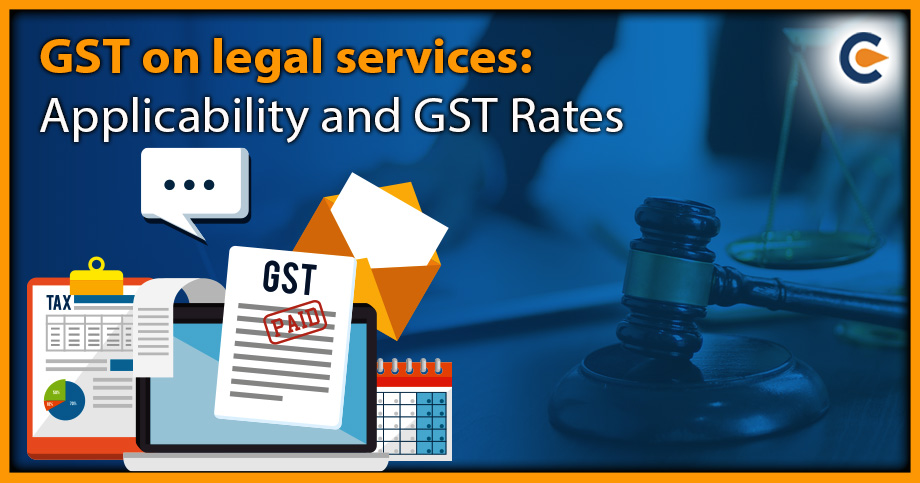A Guarantee is a declaration to provide some sort of collateral against any loan availed. A corporate Guarantee is a kind of guarantee where a corporation, business house, or enterprise undertakes a guarantee for another group or another company. The Guarantee provided at the time of availing the term loan, working capital, or credit line from the bank or authorized Financial Institute or credit provider by the company undertaking the guarantee (Guarantor).One of the main advantages of a corporate guarantee is that the guarantor does not charge any fees from the guarantee, as the objective of the guarantor is to facilitate the surety in the availing of credit, depending on the type of guarantee being provided. Corporate Guarantees are unsecured in nature, and the guarantor does not provide any security for the same. If the guarantee is provided by the guarantor against some commission, charge or fee, the said amount is taxable under the GST Act. The services of corporate guarantee are considered a supply, even in the absence of consideration, as per Schedule- 1 of the GST Act and hence attract GST as per Section 25 of the Act. Hence, the practice of Corporate Guarantee is a taxable supply of goods or services and attracts tax even without reciprocal exchange of consideration of goods or services.
How to Obtain a Corporate Guarantee
Here’s how you will obtain a corporate guarantee from a bank any other financial institutions in India-
Clarifications Provided by Goods and Services (GST) Council.
The 52nd Meeting of GST Council on October 7th, 2023, provided clarification on the position of Personal Guarantee provided by corporate persons or extended to related persons. The meeting issued a public circular on the following issues –
Guarantee offered by Directors
When the director of a company provides a personal guarantee for the company on his/her own behalf, and no consideration is paid by the Company, the open market value of such transaction is considered as zero, and hence no tax is charged on such guarantee.
Rate of tax between related parties
The rate of tax between related parties for the purpose of exchanging corporate guarantees was decided at 1% of the value of the guarantee or the amount of the actual guarantee, whichever is higher. This amendment was made through the insertion of sub-rule 2 of Rule 28 of the Goods and Services Act,2017. Further, for the purpose of ascertaining who is a related person, a person is said to be a ‘deemed’ related person, as per section 15 of the CGST Act, if he/she directly or indirectly holds 25% or more of the company’s paid-up capital of voting rights.
Governing Corporate Guarantee
The circular further resolved that after the insertion of the said sub-rule, the value of such supply of services of corporate guarantee provided between related parties would be governed by the proposed sub-rule (2) of rule 28 of CGST Rules, 2017, irrespective of whether full Input Tax Credit is available to the recipient of services or not.
Advantages of Corporate Guarantee
Here are some of the advantages associated with a corporate guarantee-
Less Burden on the borrower
Corporate guarantee shifts the immediate burden from the debtor to the guarantor and allows more in solation to the borrower against unnecessary collateralized obligations. This advantage of corporate guarantees is also beneficial for the purpose of making tax exemptions and savings available to the guarantor.
GST Exemptions on Personal Guarantees
The GST Council provided clarification on the point that in situations where the company does not provide any consideration against personal guarantee provided by the directors or employees on behalf of the company, the market value of such guarantees would be considered nil and hence would neither constitute a valid supply, not would attract GST.
Applicability of GST
The Central Board of Indirect Taxes and Customs (CBIC), shortly after the GST Council Meeting on 26th October, announced that GST rates would apply to corporate guarantees executed between the guarantor and their subsisting guarantees provided in relation to bank loans and credits. The rate of GST charged on such guarantees would be 18% on 1% of the loan amount or the amount of the guarantee, whichever is higher. These guidelines, however, are prospective in nature and would not have any effect on transactions executed before its enforcement, i.e. 26th October 2023.
Scope of Rule 28 of the GST Act
Rule 28 of the GST Act specifies that the value of goods and services transacted between related persons shall be at the open market value of such goods and services or goods and services of similar nature available in the market- provided if the value of goods and services cannot be determined and the same is not done through an agent or a third party, shall be determined by application of Rule 30 or 31. Provided further that where the goods are intended for further supply as such by the recipient, the value shall, at the option of the supplier, be an amount equivalent to ninety per cent of the price charged for the supply of goods of like kind and quality by the recipient to his customer not being a related person: Provided further that where the recipient is eligible for full input tax credit, the value declared in the invoice shall be deemed to be the open market value of the goods or services.
Types of Corporate Guarantees
There are several types of guarantees, both individual and corporate, which are intended to benefit the borrower in facilitating loans or credit facilities from banks or financial institutions. The Guarantee plays an essential role in establishing the credibility of the borrower through the guarantor. The type of corporate guarantee varies depending upon the type of type of transaction, nature of work, and requirement of the borrower. An advantage of a corporate guarantee is that it safeguards the borrower against any future liability and is beneficial in cases when the corporation does not have enough capital or liquidity to pledge against the loan.
Another advantage of Corporate Guarantees is that they are differentiated on the basis of the limit or extent of the liability of the Guarantor towards the Debtor – the person or entity who is taking the loan. As per the Indian Contract Act of 1872, guarantees are of two types – limited guarantee and unlimited guarantee.
Limited Guarantee – Limited guarantee restricts the liability of the guarantor to a certain pre-determined amount or extent only. The Guarantor cannot be liable for the entire amount of the loan and/or any extraneous out-of-the-way liability or loss incurred by the debtor. For example, in a loan agreement, the bank or lender agrees to lend USD 100,000 to the debtor on the limited guarantee pledged by the guarantor, which is only up to the amount of USD 50,000. Beyond the agreed guarantee amount, the guarantor cannot be held liable.
Unlimited Guarantee– As the name suggests, in this form of guarantee, there is full and even contingent liability upon the guarantor to vouch for the debtor while availing of a loan or credit facility. The Guarantor is generally held liable for the entire amount of the loan and, if the Agreement stipulates, can be held liable for extended liability of the debtor as well.
Conclusion and possible future implications of GST on Corporate and Personal Guarantee
The step of the GST Council to bring corporate guarantees within the purview of GST is a very welcome development in the direction of regulating guarantees between corporates and individuals. Since guarantees play a significant role in interbank commercial lending and interest rate stabilization, imposing GST can cause several ripple effects on the banking system as a whole. Banks usually require corporate guarantees from the corporations of personal guarantees from the directors or other executives of the company while providing credit facilities. Taxing guarantees would inevitably increase the cost of borrowing and can develop complexities in the banking system as a whole. In the same regard, what reforms the GST Council and Tax Authorities bring and what implications they would cast on the general business operations remains to be seen.
Frequently Asked Questions (FAQs)
There are two types of guarantees: corporate guarantees and personal guarantees.
There are two types of guarantees: limited Guarantees and unlimited guarantees.
Yes, Corporate Guarantees are treated as taxable supplies as per Schedule 1 of the GST Act.
No, a valid supply can be constituted even in the absence of an abstract consideration, such as goods or services. For example, in the case of corporate or bank guarantees, there is no reciprocal exchange of goods or services, yet they are considered as a supply as per the act.
As per the GST Council Meeting, the Corporate Guarantee given by a holding company on behalf of its subsidiary company shall attract GST at the rate of 18% on 1% of the amount of loan or the amount of guarantee, whichever is higher.
Corporate Guarantees are governed by the Indian Contract Actof 1872
Corporate guarantees are Unconditional and Irrevocable.
The Central Board of Indirect Taxes and Customs (CBIC) is the central enforcement and regulating body for Indirect taxes and customs in India.
Related Party and deemed related party is defined, under section 2(84) read with explanation to section 15 of the CGST Act, 2017, as any person who either through himself/herself or through any third person directly or indirectly controls 25% or more of the total voting capital of a company.
Taxation on Corporate Guarantee can have the following implications –
1. Increased cost of lending and borrowing
2. Increase in compliances such as annual and periodic filing of records and returns.
3. Complexity in loan and interest rate pricing
4. Challenges in Interbank tax rate fixation
5. Increased vigilance and other regulatory responsibilities of CBIC and other tax authorities
No, however, the opposite is allowed under the Companies Act.
No. However, there are some special provisions in the Companies Act that allow the company to extend loans and credit facilities on behalf of its directors/promoters.
The Union Minister of Finance chairs the meetings of the GST Council.
Supply is defined under section 7 of the CGST Act as ‘all forms of supply of goods or services or both such as sale, transfer, barter, exchange, license, rental, lease or disposal made or agreed to be made for a consideration by a person in the course or furtherance of business.’
When a subsidiary company gives a guarantee on behalf of its parent company, the same is known as an upstream guarantee.
Read Our Article: Rules Of Taxation In Securitization In India











